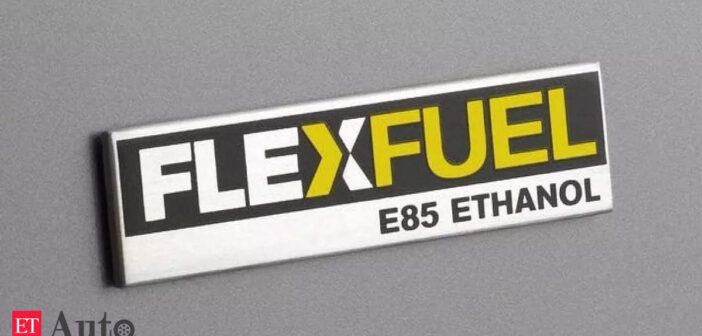(ET)
The year 2020, when India leapfrogged to BSVI, was a landmark for the Indian automotive industry. Similarly, 2022 is set to be a significant year for the industry as the Government is set to announce a policy for Flex fuel technology adoption.
A policy on Flex fuel will be announced in a few months, and its introduction will take at least a year, a source who works with a government agency said. Last year it was notified that the E20 fuel (petrol blended with 20% ethanol) programme will come into force from April 1, 2025.
Though not a major technological jump like the shift from BSIV to to BSVI, the efforts to be flex fuel-ready wouldn’t be too different either. Varying degrees of engineering intervention would be required in the fuel, electrical, and exhaust systems, and most importantly in the engine. Components like the piston, cylinder block, cylinder head, injectors, fuel rail, to name a head, injectors, fuel rail, to name a few, will have to undergo change
“Everything would need a change. In a way, it is a new engine development, so to to speak,” C V Raman, CTO and senior ED – engineering, Maruti Suzuki, said in an interview in ETAuto’s discussion series, ‘Target Net Zero’. Raman is also the the Chairman of SIAM’s Emissions and Conservation Group.
The corrosive nature of ethanol poses a major challenge to engineers. According to a representative of a global Tier1 major in Brazil, “Flex fuel engines should be developed with a systems approach”. Technology changes and material re-engineering will have a cost implication for Flex fuel vehicles, though not to the extent as was seen in the BSIV to BSVI shift.”
Re




